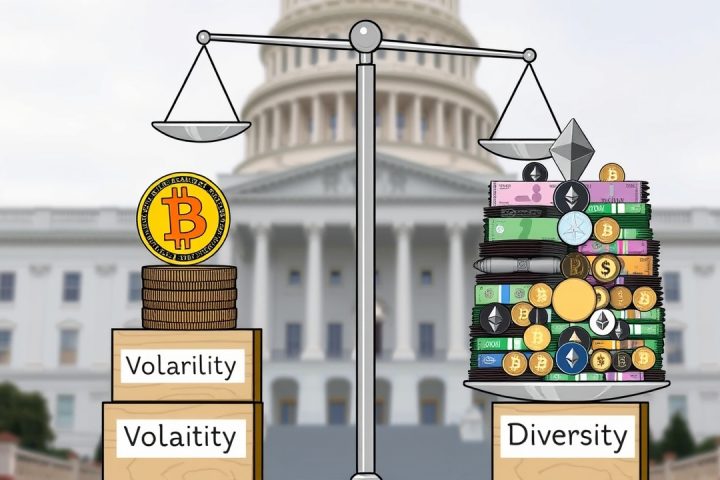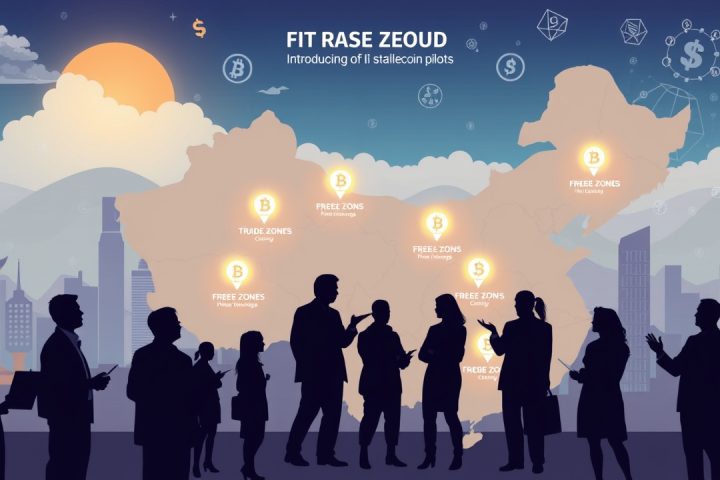New York Assemblymember Phil Steck’s Cryptocurrency Tax Proposal
Assemblymember Phil Steck from New York has clarified that his proposed cryptocurrency tax will not provide any leniency for stablecoins used in everyday transactions. In an interview with Decrypt on Tuesday, he stated,
“I believe there shouldn’t be any exemptions on crypto purchases meant for currency use.”
He expressed doubts about the potential of cryptocurrencies to replace traditional currency in typical transactions.
Tax Revenue and Social Initiatives
Steck highlighted that imposing a 0.2% tax on crypto trades in New York could yield approximately $158 million each year. The intention behind this revenue would be to support educational programs aimed at addressing substance abuse in upstate communities, thereby enhancing existing initiatives managed by the state’s Office of Alcoholism and Substance Abuse Services, which currently face funding issues.
He urged crypto enthusiasts to view the tax as a positive contribution towards societal needs, suggesting it could demonstrate their responsibility to the community. The lawmaker, who is 66 years old, compared the nature of most cryptocurrencies to forms of entertainment, asserting their speculative character. He noted his willingness to pay a 4% sales tax for attending Mets games, indicating that taxation on crypto shouldn’t be viewed differently.
Legislative Context and Consumer Impact
If approved, Steck’s bill would take effect immediately, coinciding with recent legislative changes aimed at fostering competition in the stablecoin arena by major financial institutions such as Bank of America and Citigroup, following the recent GENIUS Act. However, skepticism exists regarding the bill’s impact on consumers engaging in internal account transfers that do not generate profits, akin to transactions between savings and checking accounts.
Steck’s proposal does not exempt high-frequency trading, a practice he considers unproductive and akin to gambling. He supports levying taxes on such activities, as many economists question their economic value. Additionally, he has called for a revival of a state tax on stock transfers, a fee that was in place from 1905 until 1981.
Challenges and Criticism
Some experts believe Steck’s revenue projection might underestimate potential gains. His team encountered challenges while trying to gather data on cryptocurrency transaction volumes from the New York Department of Financial Services. Under the current language of the bill, individuals could be taxed for merely moving funds among their own accounts, a move criticized as unnecessarily burdensome by Nick Slettengren, co-founder of a tax preparation service, who warned it could lead to confusion and disputes.
Broader Implications and Future Discussions
Steck is not the only state official engaging with cryptocurrency as a funding mechanism. Wyoming recently launched its Frontier Stable Token (FRNT), aiming to bolster its school foundation fund through the revenues from stablecoin reserves. When asked about FRNT, Steck remarked on the high cost of digital currency production, primarily due to energy requirements, showing a lack of clarity on cryptocurrency mining processes and their energy implications.
As the bill progresses, Steck noted he hasn’t yet discussed it with other assembly members, with the legislature not convening until January. His proposals represent a significant intersection of blockchain innovation, taxation, and social funding needs in New York.




